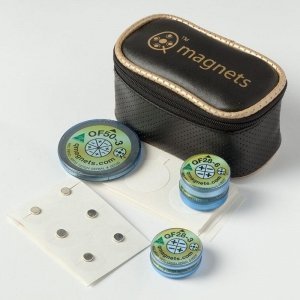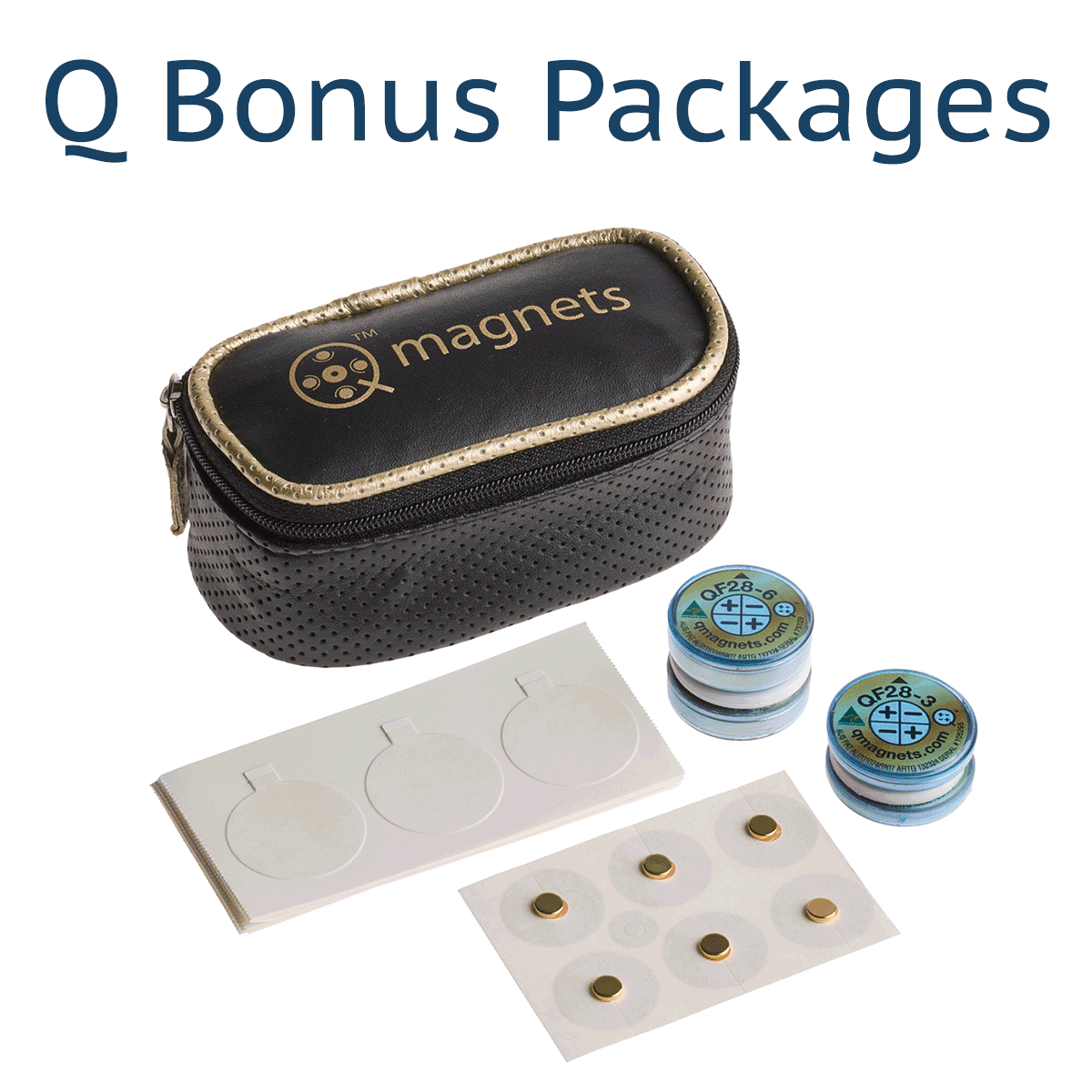Fresh off the press is the latest journal article investigating the effects of a static magnetic field (SMF) on tissue repair. Published in the Archives of Medical Research, scientists looked at the effects of moderate intensity SMF on damaged cartilage in rabbits. This study did not specifically use a Q Magnet.
What makes this study different from previous attempts is that the magnets were surgically implanted next to the knee joint at the site of the defect. This is important as it’s the same principle as a typical Q Magnet application where the devices are taped to the skin directly over the injured area. This is in contrast to previous studies using animals in cages with a magnetic floor, where there is obvious variation of the magnetic field at the knee joint every time the animal moves.
So what happened to these poor rabbits and their surgically induced cartilage injuries? Well 14 had a cylindrical (15X5mm) 40mT ceramic magnet implanted such that the strength of the field was 8mT at the site of the defect. 8 rabbits had a placebo or sham magnet implanted and 8 were left in the control group with no intervention. Unfortunately 1 rabbit died in each of the placebo and control group which left 7 who could then be assessed after a 12 week recovery.
There were a number of methods to evaluate the tissue recovery, the main one being a modified Mankin score which assigned a 0 for normal cartilage to 20 for the worst histological damage. As can be seen on the bottom two lines of the table below, the rabbits in the active magnet group had a Mankin score of 1.6 ± 0.6 where as the control and sham groups were significantly worse and very similar at 7.7 ± 1.0 and 7.2 ± 1.6 respectively.

In conclusion, the study says it adds to the body of evidence that permanent magnetic fields have healing effects on bone and cartilage. Moreover, the treatment modality has the added benefits of ease of application (as long as it’s taped on and not surgically implanted of course), low cost and low maintenance.
Feedback from champion athletes around the world using Q Magnet therapy backs up the findings of this study. This type of anecdotal feedback is about the best we will be able to do for human comparisons as let’s face it, ethics is hardly going to approve this type of experiment on humans. Not to mention the difficulties in finding the volunteers who would be willing to have their knee cartilage attacked by a dental drill!






